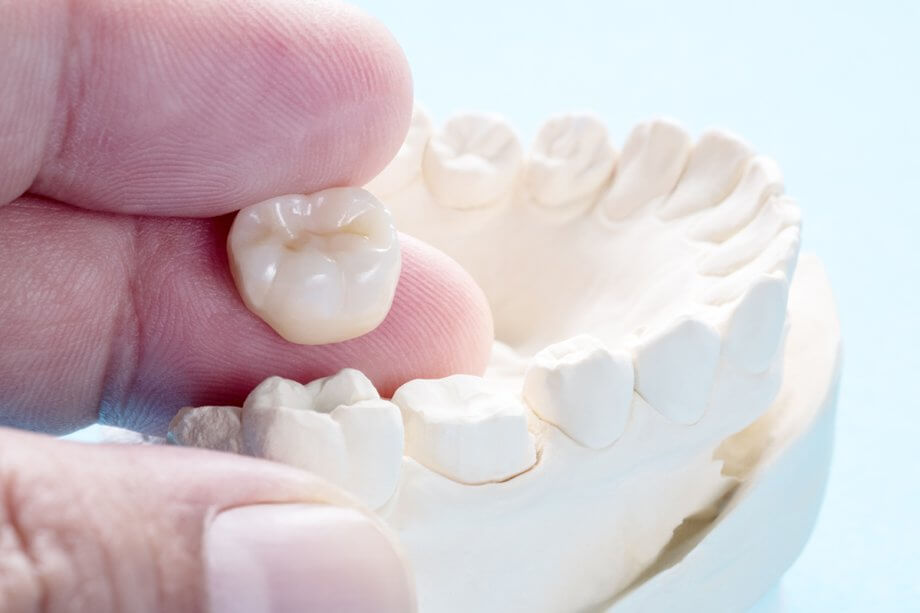A filling is often an effective treatment for dental decay. However, sometimes dental decay is so widespread that a dental crown is necessary.
A dental crown is essentially a tooth-shaped cap. Installing a crown over a decaying or damaged tooth may help preserve said tooth.
You may have questions about this treatment option if your dentist recommends it. For instance, perhaps you’re wondering what a dental crown is made of.
The following guide lists the various common materials for dental crowns. As always, your dentist can answer any additional questions you might have on this topic.
Common Materials for Dental Crowns
Dental crowns may consist of several potential materials. They include:
- Ceramic: Ceramic is a popular choice for dental crowns because it easily resembles the appearance of a natural, healthy tooth. A dentist may offer this crown if you’re covering a tooth that tends to be visible.
- Porcelain and metal: Some dental crowns consist of porcelain atop a metal frame. A dentist may recommend this type of crown for a molar, as the metal frame is durable enough to ensure chewing doesn’t easily damage the crown. However, because portions of the metal base may be visible upon close inspection, a dentist might not recommend this type of crown for a front tooth.
- Gold alloy: A dentist might account for a patient’s dental and oral health habits when deciding what type of crown is ideal for them. For example, because gold alloy crowns are remarkably durable, dentists sometimes offer them to patients who tend to grind their teeth.
- Base metal alloy: A base metal alloy crown is another durable option a dentist might consider if a patient needs a crown that won’t be easy to damage. Often, a dentist will suggest gold alloy crowns and base metal alloy crowns for molars, as these types of crowns don’t resemble natural teeth the way ceramic crowns do.
No single type of dental crown is universally superior to all others. Your dentist can discuss the pros and cons of each option in greater detail to help you better determine what dental crown material best serves your needs.
Common Reasons for a Dental Crown
Although widespread dental decay is typically the reason a dentist may recommend a crown, there are other circumstances in which a crown might be necessary. Examples include the following:
- Preserving a tooth after a root canal treatment
- Protecting and improving the appearance of a broken, cracked, or otherwise fractured tooth
- Adding support to a tooth with a large filling
- Improving the appearance of teeth that are discolored or misshapen
- Restoring a tooth that has worn down as a result of tooth grinding
Installing a crown is also among the last steps in the dental implant procedure. Once the implant has fused with a patient’s jawbone and the dentist has installed an abutment, they will install a crown to cover the implant.
Be aware that a crown can stay in good condition for a long time with proper upkeep. According to one study in the Journal of Prosthetic Dentistry, when a patient coordinates with a dentist, it’s not uncommon for a crown to last decades.
Dental Crown Materials: Several Options to Consider
Understanding the nature of any dental treatment you receive may be one of your top priorities when seeing a dentist. Thus, you should feel free to ask your dentist to explain why a particular type of dental crown is right for you if they recommend one. A professional who’s familiar with the various options will help you select the ideal dental crown material.
Learn More About Dental Crowns in New York, NY
At Smiles on the Upper Westside, we’re always happy to answer our patients questions about dental crowns and any other treatment we offer. Get started today by contacting us online or calling us at 212-222-5225 to request an appointment.

